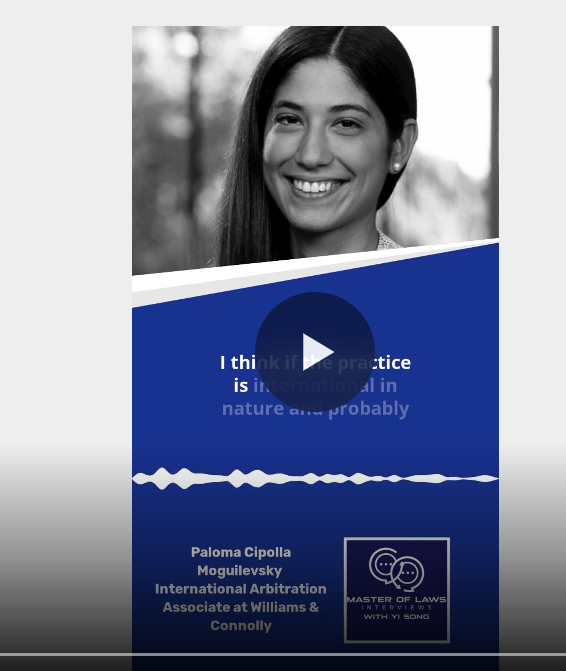Posted by Stephen Horowitz, Lecturer of Legal English
Law schools in the US have become increasingly aware of and attuned to the range of cognitive learning issues that law students may deal with. I remember how counter-intuitive that seemed to me the first time I learned about this topic several years ago: “How could someone even get into law school if they have cognitive learning issues?” my brain naively wondered.
And the answer is that learning issues include things like ADHD (attention deficit/hyperactivity disorder), neurodivergence (e.g., autism), and dyslexia. And perhaps it even overlaps with anxiety, which often can present in the form of various learning issues.
In the context of foreign-trained lawyers and law students in LLM, JD and MSL programs in the US, the topic of course can be particularly tricky. In part because of cultural differences in attitudes towards and awareness of learning issues. And in part because it’s much more difficult to identify or diagnose issues when someone is operating in a second or third or fourth language. Is a student’s struggle with reading a function of language or of a learning issue? It’s hard to know. And in the case of dyslexia, there’s even a case to be made (in this TikTok video clip by @etymologynerd) that the nature of written English may cause more problems for people with dyslexia than other written languages do. So it’s possible that a foreign-trained law student in the US could struggle with dyslexia studying in English when it was not an issue for them studying in their home language.
I’m not aware of any specific solutions or research or discussion related to the intersection of learning issues and foreign-trained lawyers and law students in US law schools. But I think if nothing else, it’s helpful and important to bring awareness to such students, as well as to faculty and administrators who work with them, that these issues are out there and are very much on law school’s radars these days in a way they were not at all back when I was a law student in the 1990s.
Here’s a Law School Toolbox Podcast Episode (474) titled “Thriving in Law School with ADHD (w/ Rawi Nanakul.”
In this episode they discuss:
- >Rawi’s personal journey and ADHD diagnosis
- >Identifying ADHD signs
- >The difference between the help provided by a doctor, a therapist, and an ADHD coach
- >A few specific scenarios that might play out for students struggling with ADHD
- >The importance of self-care and professional help
Resources:
- >Tech Atypically (https://www.techatypically.com/)
- >Tech Atypically newsletter (https://adhdpm.substack.com/)
- >Podcast Episode 436: Improving Executive Functioning Skills as a Law Student (https://lawschooltoolbox.com/podcast-episode-436-improving-executive-functioning-skills-as-a-law-student/)
- >Podcast Episode 437: Quick Tips – Succeeding in Law School with ADHD (https://lawschooltoolbox.com/podcast-episode-437-quick-tips-succeeding-in-law-school-with-adhd/)
- >Podcast Episode 445: Best Practices for Getting Accommodations in Law School (https://lawschooltoolbox.com/podcast-episode-445-best-practices-for-getting-accommodations-in-law-school/)
- >Podcast Episode 470: Tips for Neurodivergent Law Students (w/Heather Varanini and Rebecca Petrilli) (https://lawschooltoolbox.com/podcast-episode-470-tips-for-neurodivergent-law-students-w-heather-varanini-and-rebecca-petrilli/)
- Download the Transcript (https://lawschooltoolbox.com/episode-474-thriving-in-law-school-with-adhd-w-rawi-nanakul/)
Note from the Law School Toolbox Podcat:
If you enjoy the podcast, we’d love a nice review and/or rating on Apple Podcasts (https://itunes.apple.com/us/podcast/law-school-toolbox-podcast/id1027603976) or your favorite listening app. And feel free to reach out to us directly. You can always reach us via the contact form on the Law School Toolbox website (http://lawschooltoolbox.com/contact). If you’re concerned about the bar exam, check out our sister site, the Bar Exam Toolbox (http://barexamtoolbox.com/). You can also sign up for our weekly podcast newsletter (https://lawschooltoolbox.com/get-law-school-podcast-updates/) to make sure you never miss an episode!
Thanks for listening!
Alison & Lee
Note: The Georgetown Legal English Blog has no affiliation with the Law School Toolbox Podcast or its parent organization JDSupra. We just thought this was a helpful episode to share.












